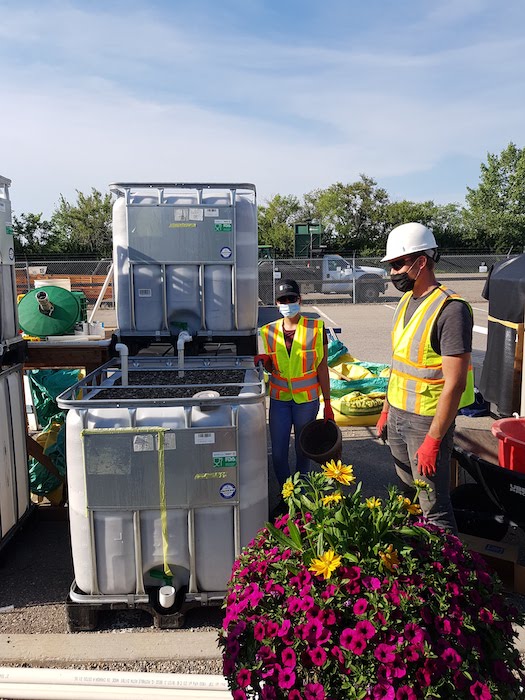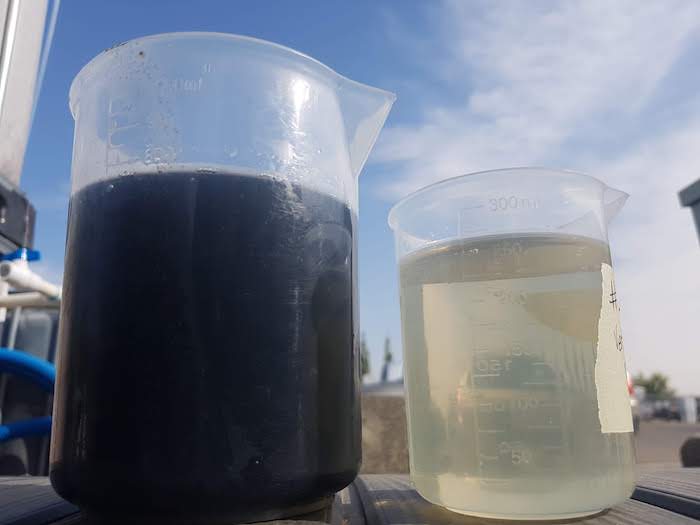
Magna Engineering transforms sewage treatment in Chestermere, Alta.
December 11, 2020
By Peter Saunders
A pilot program is engineering wetlands.
Magna Engineering Services, a consulting firm based in Chestermere, Alta., recently partnered with the local government and Calgary-based Eco-Growth Environmental on a sewage treatment pilot program that aims to use engineered wetlands and dehydration to turn raw sewage into biofuel, fertilizer and water.
The program takes inspiration from green infrastructure practices that have benefited small European communities for nearly 100 years, but have rarely been imitated anywhere in North America.
“Nature knows best,” says Magna CEO and owner Jennifer Massig, P.Eng., formerly a Chestermere city councillor and senior engineering consultant. “I started this company to do sustainable, long-term projects for municipalities. In this case, I had to talk to regulators and share with them what Europe does in terms of using wetlands for wastewater treatment. Chestermere wants to be at the forefront of innovation and my main job in this respect is advocacy.”
Drawing wastewater from a local septic tank, the project is using a Magna Omni-Processor (MOP) for naturalized wastewater treatment and an Eco-Growth system within a public works yard, combining micro-screening (to separate liquids from solids), small-scale engineered subsurface wetlands and a solids handling dehydrator and boiler, so as to transform liquid waste into high-quality water and solid waste into energy and ash for fertilizer or road materials.
“This particular technology is only from the last three years,” Massig explains.
In the past, Chestermere’s sewage has been transported elsewhere for treatment. One goal of the project is to instead provide complete autonomy over its water resources.
The project is also supported by Alberta Innovates, the National Research Council of Canada (NRC) and the Canadian Environmental Technology Advancement Corporation – West (CETAC-WEST). The system began full operations on Sept. 10 and ran until Nov. 20, at which point full results could be reviewed and, for that matter, the project could avoid the need for full winterization.
“From day one, we had some epic fails,” Massig laughs. “We were using agricultural chemical totes to hold sand, gravel and organics, for example, but they didn’t work well and they developed hairline cracks. We also sourced mulch from the landscaping industry that turned the water a terrible red colour. At the same time, though, we also hit our targets with Environment Canada from day one, with really positive results. We thought we would have to recycle the water for a while to let the vegetation ‘take,’ but no, the system worked from the day we turned it on.”
Next, Magna will scale the technology up for a larger coastal project in Prince Rupert, B.C., which is expected to be up and running in June 2021.
This article originally appeared in the December 2020 issue of Canadian Consulting Engineer.

